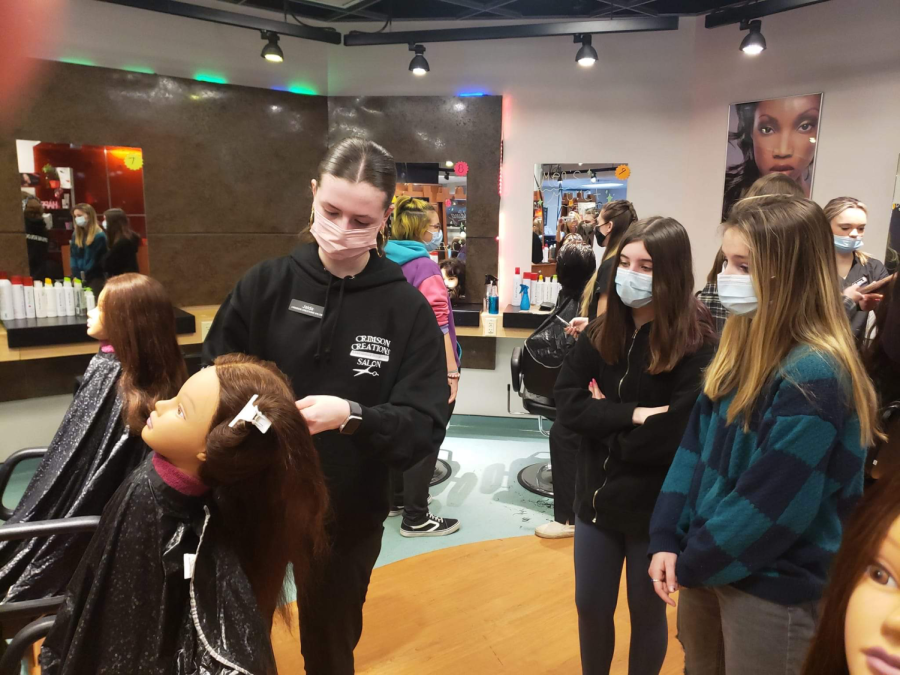Opinion: Beware relaxing cosmetology laws
Students in the CRTC Cosmetology program can earn up to 360 hours of post-secondary cosmetology, according to the program’s description on the CRTC website. Here two prospective enrollees watch Cosmetology student Jaida Hurd during a CRTC preview day.
Proposed changes in New Hampshire law would make it possible for people without a cosmetology license to perform certain services—including shampooing, styling and curling hair, but also eyelash extensions and threading.
Winchester Republican Rep. Jennifer Rhodes, who co-sponsored House Bill 1171 last year to ease licensing requirements for cosmetologists, told a Concord Monitor reporter, “These are services most people already do at home or have a friend or family member do for them.”
HB 1171 passed the House last March, but the Senate has not yet acted on it.
It is true that people may perform some cosmetology services on their own, but having an unlicensed worker perform services when they don’t know what they are doing can be harmful to the public. People who lack full training could cause harm for customers and ruin a business’s reputation.
At present, a person wanting to earn a standard cosmetology license needs to put in 1,500 practice hours or 3,000 hours under a licensed cosmetologist. During that time, candidates learn proper disinfection and sanitation techniques along with how to do hair.
They also learn why this is such a big deal and how easily infections and communicable diseases are spread.
This is a big problem specifically with eyelash extensions. If you don’t disinfect everything meticulously, someone could very easily come down with an eye disease.
Or, if someone were to use products improperly, a customer could experience a severe reaction.
Somebody reusing tools could very easily spread bacteria and disease from one person to another.
In conclusion, I don’t think this bill should have passed. Changes would represent a safety hazard.












